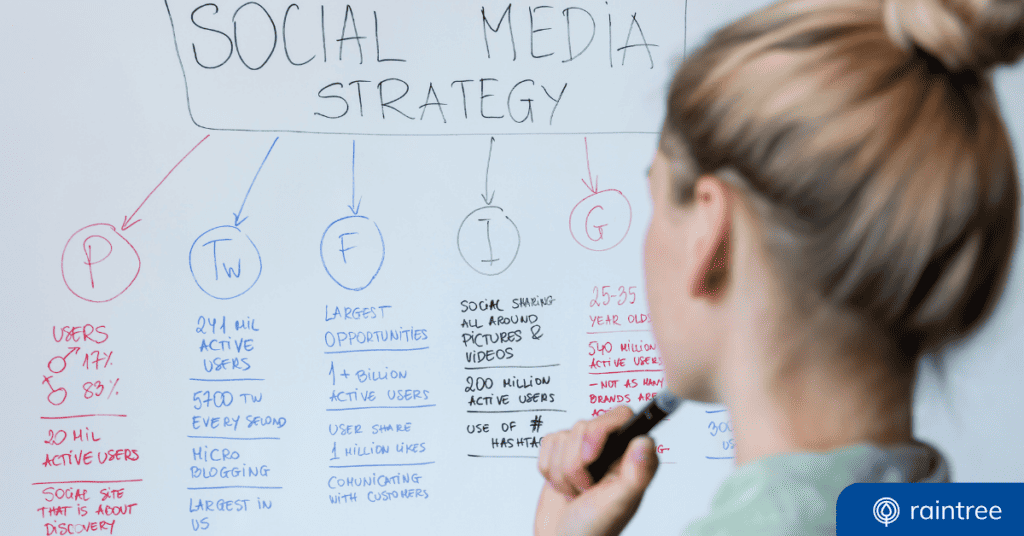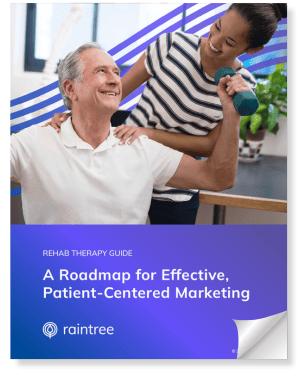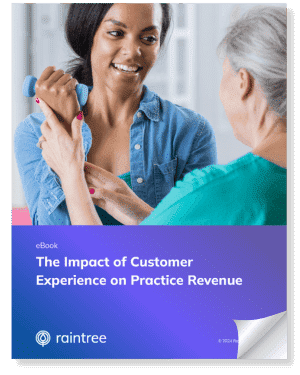
Social media in healthcare marketing can help organizations reach new heights and even higher goals. To reach new patients and engage your current patient base, you need to build your social media strategy on a solid foundation.
Let’s explore the business benefits of social media in healthcare marketing, and how to avoid the unique pitfalls that exist for our field.
Benefits of Social Media in Healthcare Marketing
From a business perspective, social media has incredible potential. More than just a secret sauce, it can be the recipe for success! That is, when it’s used effectively.
1. Brand Amplification, But Make It Cost-Efficient
Did you know your practice can cultivate a strong brand presence without exhausting your budget?
Social media platforms are a cost-effective way to cultivate a strong brand. For one thing, most social media platforms allow brands to create profiles without spending a dime. This shouldn’t be surprising—after all, it’s rare to find a brand, healthcare or otherwise, that’s not already online. As of 2022, Statista research on social media use by healthcare marketers indicates:
... that Facebook was the most popular social network among healthcare marketers – 98 percent of respondents had an active account on the platform at the time of the survey. YouTube and Instagram followed, with 94 percent and 92 percent, respectively.
If your practice is actively investing budget in paid advertising, social media can also offer high return-on-investment for relatively low spend.
2. Interact with Your Audience
It’s time to swap the scrubs for threads and stories! The defining feature of social media is that it’s, you know, social. It’s not enough just to post a photo or meme and wait for the likes to roll in. Today’s audiences expect back-and-forth, interactivity, and engagement with trending ideas or content.
A huge myth in marketing is the idea that “This strategy, platform, trend, etc. won’t work for my industry.” And healthcare is no exception. So get out there and show off your brand’s personality.
(Of course, you still have to be thoughtful and strategic. Interacting with current or prospective patients can pose some business risks when done carelessly. See below.)
3. Boosting Patient Referrals, Organically
What’s the number one way to gain or lose a prospective patient?
Ignoring what your current patients say about your business.
Word-of-mouth and referrals are powerful in the healthcare sector, which relies deeply on cultivating trust between patients and providers. It’s no surprise that social media platforms play a key role in the journey from “seeking care” to “new patient.”
Of the patients who use social media for health information, a study by PwC Health Research determined that 42% seek provider and/or practice reviews, 32% post about the health experiences of friends and family, and 24% view health-related media.
What does this tell us? Authentic endorsements are everything. And the key word here is authentic.
Social proof that resonates on an emotional level can not only boost the practice’s image and credibility, but can do a lot to get prospects through the door.
4. Use Analytics to Find What Resonates
You know we love talking about data-driven decision making and business intelligence.
After all, making informed decisions is at the heart of efficient practice management. And social media platforms have their own unique insights to provide.
By keeping an eye on post engagements, reach, and audience demographics, you can put the “strategy” in “marketing strategy.” Social media analytics can help you identify successful content types, common questions, and whether you’re reaching your target audience.
5. Keep Patients Informed in Real Time
In our corner of the healthcare field, rehabilitation therapy, there’s a lot of talk about diversifying practice revenue streams, growing your business, and keeping patients in adherence to plans of care.
The common denominator in reaching these goals? Keeping patients informed and engaged.
Social media is a great space to announce new services, promotions, or operational changes. And because social media users are active at all hours, you might just reach them faster with a Reel than an 8am email. Try it and let us know how it goes!
Risks of Social Media Use in Healthcare
Nothing good comes without a certain amount of risk. And in healthcare marketing, you can’t take risks lightly.
From a business perspective, here are some key risks associated with the use of social media for healthcare marketing:
-
Patient privacy violations. Accidentally sharing identifiable patient information, even if it seems innocuous, can violate regulations such as the Health Insurance Portability and Accountability Act (HIPAA) in the U.S. Such violations can result in hefty fines, but don’t forget the hidden costs of reputational damage.
-
Malpractice claims. Content that could be interpreted as medical advice could open up healthcare organizations or professionals to potential malpractice claims if patients act on this advice to their detriment. Marketers should work closely with your legal advisors when possible.
-
Compromising professional boundaries. On an individual level, engaging with patients on social media can blur professional boundaries. Creating social media guidelines for your employees can prevent ethical issues before they emerge.
-
Damaging your brand reputation. Negative reviews or comments can spread rapidly on social media. But what matters more is how healthcare businesses handle negative feedback or crises in the public eye.
-
Data security issues. Like other digital platforms, social media channels can be vulnerable to hacking, unauthorized access, or scams. Keep those passwords under lock and key, and use two-factor authentication for extra security.
-
Taking up limited resources. The health labor shortage is ongoing, and professionals in the field are burning out. When you’re short on hands, social media can feel like a burden, rather than a benefit.
-
Cultural sensitivity missteps. In healthcare, where empathy and understanding are vital, you must always vet your content before hitting “Publish.” Consider the perspectives and experiences of all of your audience.
-
Copyright is still important. Unauthorized use of copyrighted images, videos, or content can result in legal action against the healthcare entity. Yes, that even goes for memes.
Social Media Tips for Healthcare Organizations
Here are some key tips for integrating social media into healthcare marketing strategies:
-
Mind the risks. When creating your brand’s social media strategy, keep the needs and privacy of your patients at the forefront.
-
Share authentic content. Use real stories, patient testimonials, and behind-the-scenes glimpses to build trust and humanize your brand.
-
Demonstrate your values. Patients respond well to medical brands that are proactive, inclusive, consistent, and empathetic.
- Engage, don’t just broadcast. Respond to comments, engage in conversations, and foster a two-way communication channel.
Remember, in healthcare, trust is paramount. Patients will view your social media platforms as an extension of your ability to meet their needs, beyond the clinical setting.
Level Up Your Healthcare Industry Marketing Strategy
Before you head off to publish your next viral TikTok, we have some bonus advice for our readers in the rehab therapy field.
A comprehensive marketing strategy doesn’t stop at social media. Our Connect patient engagement platform can accelerate your physical therapy marketing efforts with automated engagement campaigns and marketing tools built to optimize your practice’s online presence. Request a demo today!
Read the Guide:
A Roadmap for Effective, Patient-Centered Marketing
FAQs: Social Media Strategy for Healthcare Practices
How can healthcare practices use social media to their advantage?
Healthcare practices can benefit from utilizing social media platforms to communicate with patients, share health information, and build their brand presence. It's another tool in the toolbox for digital healthcare marketers!
What are the benefits of incorporating social media into healthcare practices?
Social media provides a range of benefits for healthcare practices. First and foremost, social media can build on and enhance patient engagement strategies. It's also a great way to reach new prospective patients, as well.
Which social media platforms are best for healthcare practices?
The choice of social media platforms for healthcare practices depends on the target audience and goals. Popular options include Facebook, X (formerly Twitter), LinkedIn, and Instagram, but emerging platforms like TikTok hold game-changing potential. It's important to select platforms that are used by your patient demographics. Social media strategy is never one-size-fits-all!
What should be the goal of a social media strategy for healthcare practices?
The primary goal of a social media strategy for healthcare practices is to support patient engagement and increase the visibility of important business and public health updates. Other goals may include enhancing brand presence, growing the practice's online audiences, and attracting new patients.
How can social media be used to improve patient care?
Social media can help healthcare practices improve patient care by providing quick and accessible health information, offering support and education, and promoting preventive care measures. It can also be used to inform business decisions, as a way to gather candid patient feedback and address common questions.
How can healthcare practices maintain an effective social media presence?
To maintain an effective social media presence, healthcare practices should consistently post relevant and engaging content, interact with their audience, respond to comments and messages, and adhere to social media best practices and guidelines. Using social media tools to schedule and manage their posts and inboxes can help make the whole process easier and more efficient!

